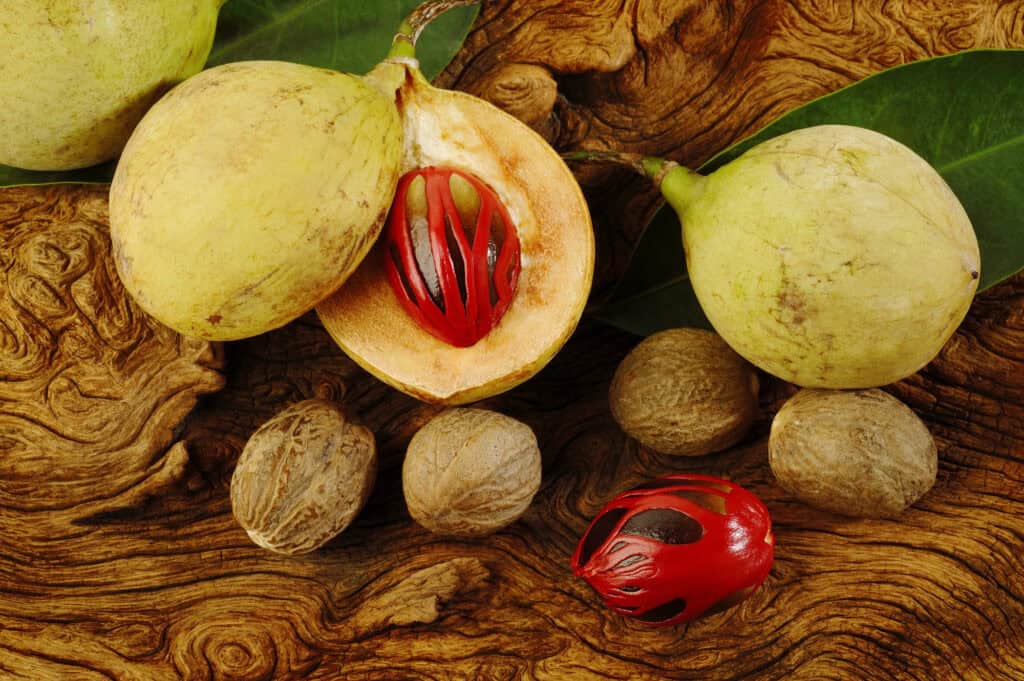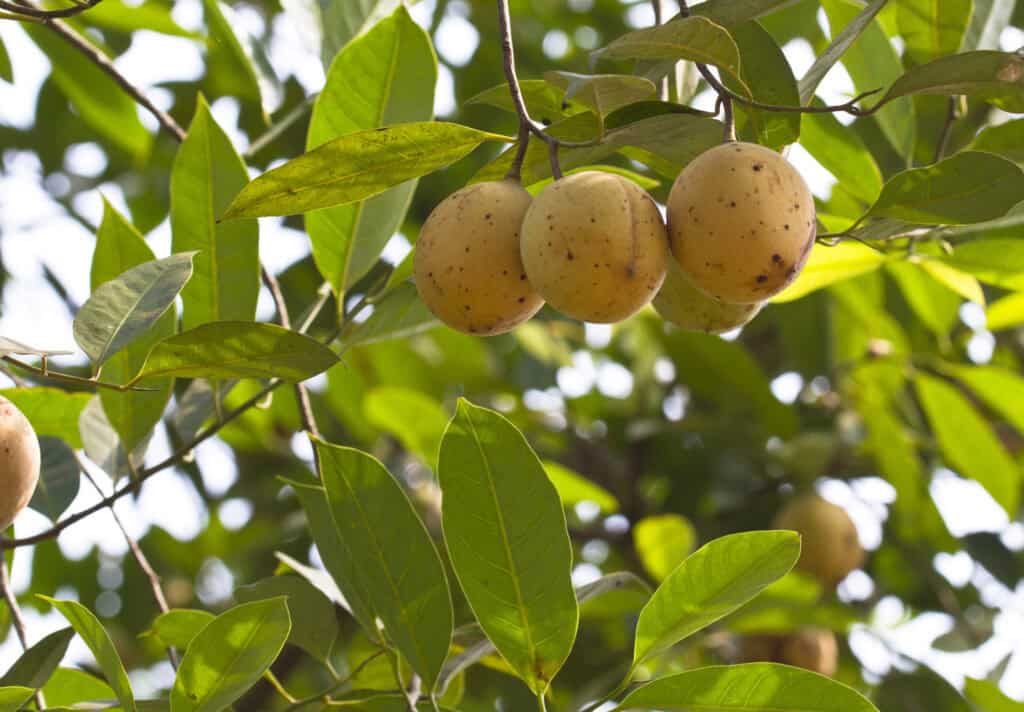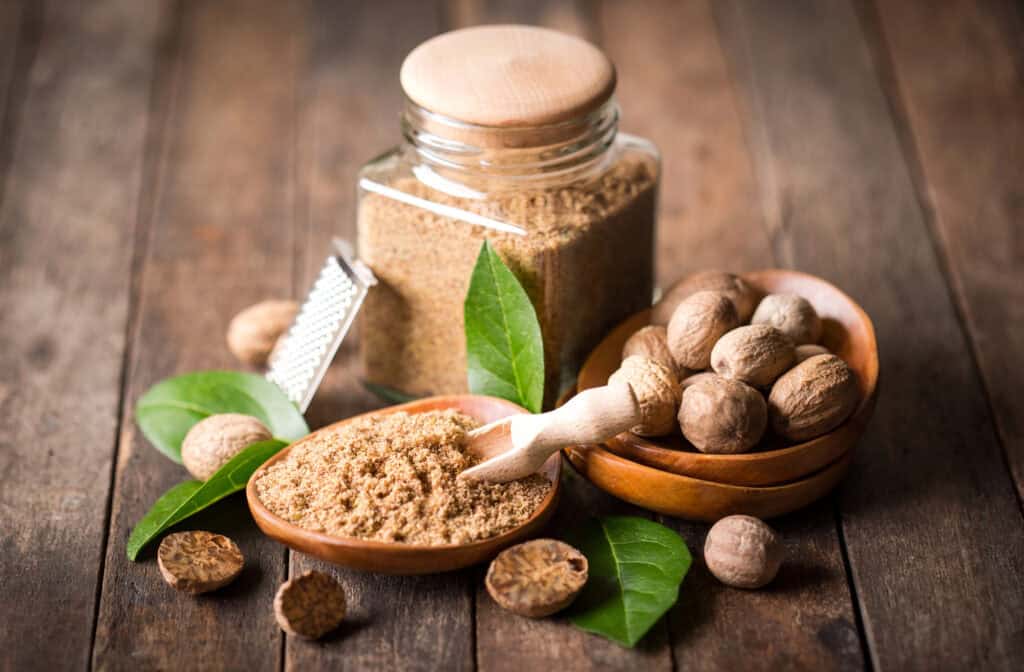When you think of Grenada, what comes to mind? Turquoise waters? White sandy beaches? Maybe the lively and colorful Carnival? While all these are true and utterly captivating, Grenada holds a secret so aromatic and rich that it’s been dubbed the “Spice Isle.” This Caribbean gem is synonymous with nutmeg and mace, two spices deeply woven into the island’s history, culture and economy. Let’s explore Grenada’s nutmeg and mace legacy and uncover the secrets that make this island truly unique.

The history of Grenada’s spices
Imagine walking through the bustling streets of St. George’s, Grenada’s capital, back in the late 1800s. The air is thick with the fragrant aroma of spices. Traders from all over the world converge here, lured by the promise of high-quality nutmeg and mace. Grenada’s relationship with these spices dates back to this era when the British introduced nutmeg trees from Indonesia.
By the early 1900s, Grenada had become a powerhouse in the global spice market. The fertile volcanic soil and perfect climate provided ideal conditions for nutmeg and mace cultivation. This tiny island was producing nearly a third of the world’s nutmeg, earning its nickname, the “Spice Isle.”
The journey from tree to table
Walking through a nutmeg plantation in Grenada is like stepping into a different world. The trees, with their glossy leaves and fragrant flowers, seem almost magical. The nutmeg fruit, when ripe, splits open to reveal a brown, glossy seed encased in a vibrant red lace-like covering. This is where the magic happens — this seed is nutmeg, and the red covering is mace.

The process of transforming these raw spices into the ones we use in our kitchens is meticulous and fascinating. The fruit is harvested by hand, ensuring only the best are picked. The mace is carefully separated from the seed and dried until it turns a rich amber color. Meanwhile, the nutmeg seeds are dried for six to eight weeks until the kernel rattles inside the shell. Only then are they cracked open to reveal the aromatic spice within.
Nutmeg and mace in Grenadian culture
In Grenada, nutmeg and mace are more than just spices — they are a way of life. Stroll through any market, and you’ll find an array of products featuring these aromatic gems. From nutmeg syrup to nutmeg soap, the versatility of these spices is astounding.

Grenadian cuisine is deeply influenced by these flavors. Have you ever tried a Grenadian nutmeg ice cream? It’s a must. The creamy, sweet treat is laced with the warm, spicy notes of freshly grated nutmeg. Or perhaps you’d prefer a classic Grenadian stew, seasoned with a blend of spices including mace. The flavors are rich, complex and deeply satisfying.
One discovery locals swear by was nutmeg oil. This golden elixir is believed to have numerous health benefits, from relieving pain to improving digestion.
The economic impact
The nutmeg and mace industry is a cornerstone of Grenada’s economy. Thousands of farmers and workers cultivate, harvest and process these spices. The revenue generated supports local communities and contributes significantly to the country’s GDP.
But it hasn’t always been smooth sailing. In 2004, Hurricane Ivan devastated Grenada, destroying nearly 90% of houses. The industry was brought to its knees, and the recovery has been slow and arduous. However, the resilience of the Grenadian people is inspiring. New trees were planted, and slowly but surely, the industry is recovering.
Experiencing the Spice Isle
A trip to Grenada is incomplete without immersing yourself in its spice culture. One of the best ways to do this is by visiting the Gouyave Nutmeg Processing Station. Here, you can witness the journey of nutmeg from harvest to export. The tour guides, with their wealth of knowledge and infectious enthusiasm, make this an unforgettable experience.
For a hands-on adventure, try a cooking class with a local chef. You’ll learn how to incorporate nutmeg and mace into traditional Grenadian dishes, from savory to sweet. Trust me, there’s something incredibly satisfying about cooking with spices you’ve seen harvested just a few hours earlier.
And of course, don’t forget to pick up some nutmeg and mace to bring home. Whether you’re an avid cook or just love the aroma, these spices make the perfect souvenir. Whenever you sprinkle a bit of Grenada’s nutmeg into your morning coffee or add a dash of mace to your holiday baking, you’ll be transported back to the Spice Isle.
The legacy lives on
Grenada’s nutmeg and mace legacy is a testament to the island’s rich history, vibrant culture and resilient spirit. These spices are more than just flavors — they are an integral part of what makes Grenada unique. The next time you reach for that jar of nutmeg or mace in your pantry, take a moment to appreciate the journey it has taken from the lush plantations of Grenada to your kitchen.
Exploring Grenada’s spice heritage is like peeling back layers of history and culture, each more intriguing than the last. So, if you ever find yourself on this beautiful island, be sure to explore its spicy secrets. You’ll leave with a newfound appreciation for these humble spices and the incredible people who cultivate them.
‘Loved it, want some of the fresh nutmeg and other spices. I use alot of spices when I cook, so yes you learn to very much enjoy the aroma of them……